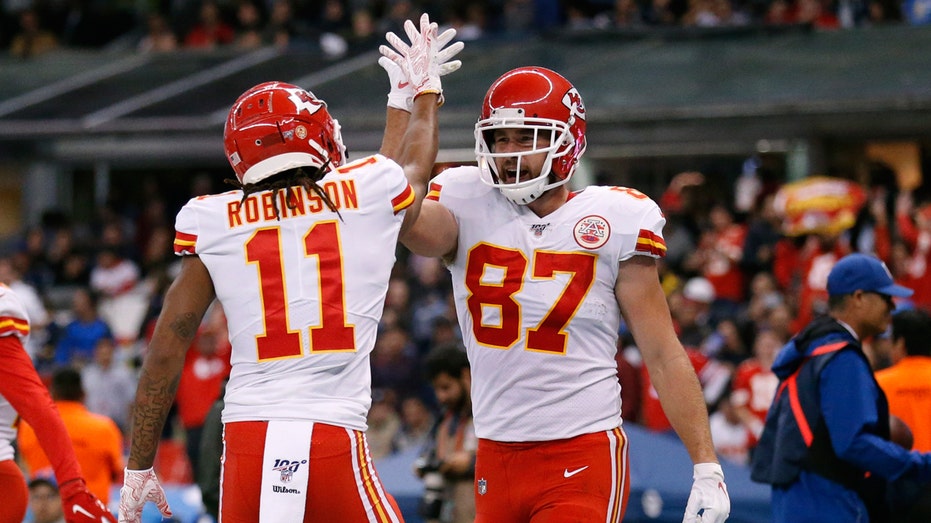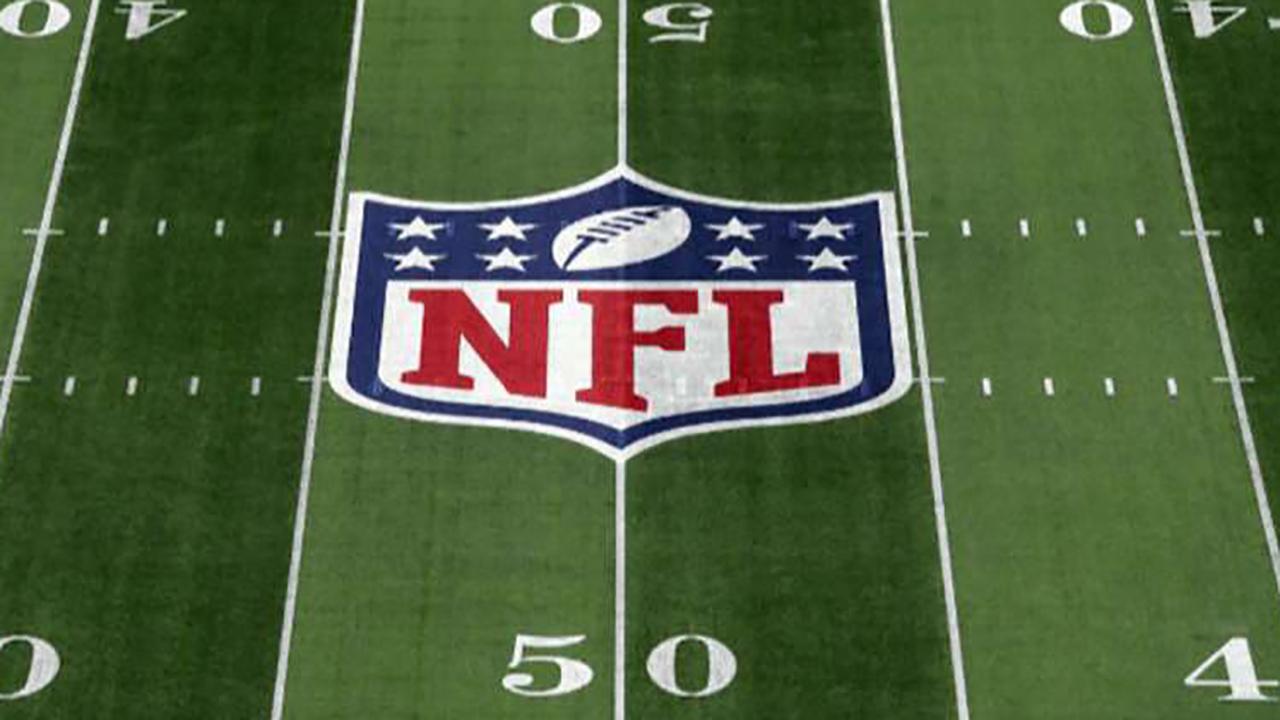NFL playbook for private money has limited options and no audibles
NFL rules say only individuals can serve as principal owners
This is the second part of a five-part series about how Wall Street investors and private equity firms are impacting the value, ownership and state of America's sports.
With private equity locked out of NFL team ownership due to the league’s notoriously strict acquisition rules, firms are using inventive methods to gain access to America’s most lucrative professional sport.
At present, investors are turning to fringe partnerships or NFL players themselves in a bid to cash in on football’s massive popularity. In a deal announced earlier this month, New York-based RedBird Capital is teaming up with the NFL Players Association and the Major League Baseball Players Association on a venture that will seek to monetize rights to the names, images and likenesses of players used in video games in trading cards and invest in companies capable of boosting those financial opportunities.
The NFL's current ownership rules hold that only individuals – not firms or corporate entities – who are capable of paying cash for a stake worth at least 30 percent of a franchise's value can become a principal owner of one of its 32 teams. While the NFL has considered relaxing its rules as franchise values rise to levels that exclude all but the richest investors, sports economists say private equity investments are likely to remain on the sport’s periphery for the time being.
NIKE DRAWN INTO NFL-KAEPERNICK WORKOUT DISPUTE
“Money talks. Relaxing the ownership rules invites more potential buyers, and that, in turn, increases sale prices and club values,” said Joel Maxcy, president of the International Association of Sports Economists. “I think there may be relaxation of the 30 percent rule — that was discussed this year around the [Carolina] Panthers sale — and maybe some other rules that reduce the financial barriers to buy-in. However, I don’t expect them to change the individual owner mandate.”
An investment in an NFL franchise, values of which have steadily risen in recent years, would be an attractive proposition – especially as investors are priced out of the bidding process. Few individuals are capable of paying the 30 percent premium required to buy an NFL team.
The NFL is set to earn an estimated $16 billion in revenue for its 2018 league year, according to various reports. The Panthers sold to former hedge fund magnate David Tepper for a record $2.2 billion in 2018, and the average NFL franchise is said to be worth nearly $3 billion, according to Forbes. Future sale prices could go even higher.
“The actual selling price of an NFL club would probably come in around $3.6 billion,” said John Vrooman, a sports economist at Vanderbilt University. “So in the average case, the majority ownership bid would probably require just under $1 billion.”

Even the deepest-pocketed billionaire could be challenged to buy a team -- unless he or she is willing to pay cash. The NFL and other leagues limit the amount of debt new owners can take on as part of their purchases. Currently, the NFL limits the debt load to $350 million, but the owners are considering an increase.
At present, the NFL does not allow private equity firms to hold an ownership stake of any size, a league representative said.
Previous private equity investments in pro football have taken various and creative forms.
RedBird Capital made an initial investment of $125 million toward its venture with the players' unions, dubbed OneTeam Partners. The NFLPA is said to have approached the firm due to its involvement with On Location Experience, the events and hospitality business that counts the NFL as a partner, according to the Wall Street Journal.
Fantex, a San Francisco-based firm that allowed the public to invest in the future earnings of professional athletes, raised more than $50 million in private funding and held “IPOs” for top NFL players such as former Houston Texans running back Arian Foster and current Washington Redskins tight end Vernon Davis. However, the company, which was counting on the huge fan appeal of the NFL, failed to catch on with consumers. While it is not taking on any new athletes or investments, Fantex declared $3.8 million in cash dividends for its athlete-tracking stocks last week. Davis paid out 18 cents per share and has paid a total of $6.01 per share since his 2014 "offering."
“My sense is the NFLPA deal and the inclusion of MLBPA offers big scale advantages to Redbird, in terms of number of players that Fantex cannot realize,” Maxcy added.
GET FOX BUSINESS ON THE GO BY CLICKING HERE
Earlier this year, the upstart Alliance of American Football sought to leverage private investments from the likes of Silicon Valley’s Founders Fund and the Chernin Group to create a tech-enhanced pro football experience. That league folded after just eights week after exhausting all of its funding.
But private equity appeared to provide the league a lifeline.
Thomas Dundon, of Dundon Capital Partners and owner of the NHL's Carolina Hurricanes, negotiated investment in the AAF to save the league. In exchange for a $250 million line of credit, Dundon was named the chairman of the league. After providing the league with $70 million, his firm pulled its support after learning about the league's finances.
In a creditor's filing for the league, Dundon claimed "the AAF also had accumulated more than $13,000,000 in unpaid debts and commitments. The AAF did not disclose these unpaid debts or commitments to [Dundon Capital Partners] prior to the execution of the February 14, 2019 Term Sheet.”
Private money has also found entry to the NFL through off-the-field ventures. FanDuel, whose early investors included Shamrock Capital, Bullpen Capital and Piton Capital, and its rival gambling service, DraftKings, which has had Redpoint Ventures, GGV Capital and Accomplice pour capital into its coffers, have reached corporate partnerships with NFL franchises in order to boost their gambling and daily fantasy sports offerings. The NFL has an investment arm of its own, dubbed 32 Equity.
CLICK HERE FOR MORE SPORTS COVERAGE ON FOXBUSINESS.COM
The NFL’s strict policy on ownership arose out of a desire to ensure that the health of the league, not a corporation or private fund, was every team's priority, said Rodney Fort, a sports economist and professor at the University of Michigan.
“The idea originally was to make sure that the actual owner had their own skin in the game and would not make choices based only on the contribution a team makes to the overall wealth position of a firm,” Fort said. “That is, the NFL believes that individuals make better choices for league franchises than do corporations.”
Tomorrow: Part three of "Changing the Game" will look at how the national pastime, baseball, is playing in the new money game.




















